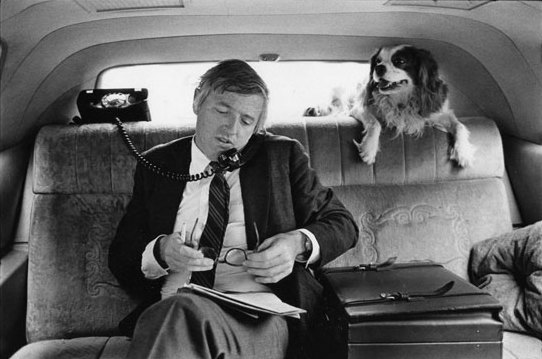Authoritarianism is, among other things, a revenge of mediocrity.
The bully with the biggest ego and largest pulpit appeals to a nation’s mean streak, seeking out those who’d rather cow than compete. Together they swing a hammer like a weapon rather than a tool, looking for a target to blame. Russia hacked the election (likely with some degree of collusion from the GOP) and the FBI acted foolishly on bad intel to disrupt Hillary Clinton’s campaign, but there’s no avoiding the reality that nearly 63 million Americans found a tyrant enticing, many of them drawn in by his absolute worse qualities.
From Business Insider essay by Josh Barro, who recently recused himself from the Republican Party:
Yet here we are, with a Republican president who calls himself “the most militaristic person” despite avoiding the Vietnam War on account of bone spurs. A Republican president who takes credit for others’ successes and no blame for his failures. A Republican president who fires the FBI director because of an investigation into any wrongdoing of his associates and then blames his press secretary for people getting mad about it.
A Republican president who is twice divorced and gleefully recounted his philandering to the press, posing as his own spokesman. A Republican president who boasted to a casual acquaintance about his history of sexual assault — “when you’re a star, they let you do it” — and then excused those comments as “locker-room talk,” as though it were normal for a grown man who wished to be president to display the maturity and respect for women you’d expect from a caricature of a junior-varsity high-school football player.
This is not the behavior of a man. It is the behavior of a man-child. Donald Trump surrounds himself with fellow man-children who behave in a similar manner. And a great many American voters eat it up.
Why? Well, one reason is that many men in America right now have little to offer women. They do not live up to either to the old, chauvinistic standards for adult men or the new, egalitarian ones. They want what Trump has — the women, the money, the brass-plated apartment — without having to do better or be better to get it.
They think they’d be better off under a return to high-school norms, where men could “be men” but really be boys, and gain status through cruel dominance plays without bearing any real-life responsibilities.
This approach to life worked for Trump because he inherited hundreds of millions of dollars. But it is no way to run a country or a society — or a political party.•



